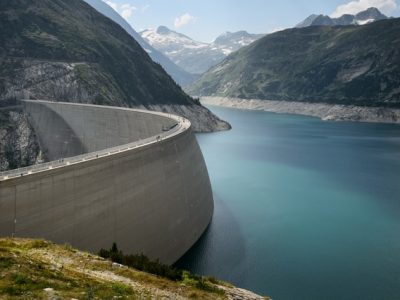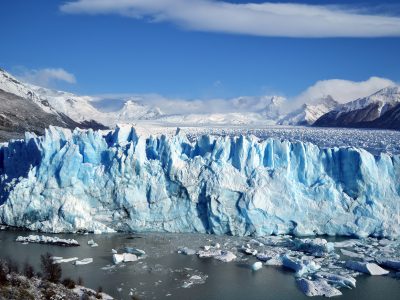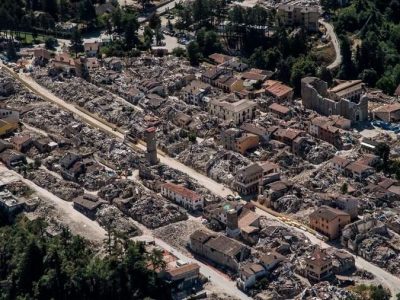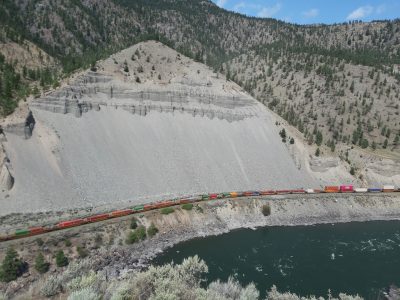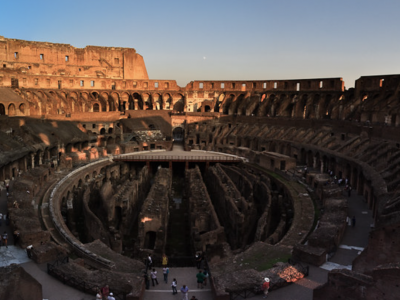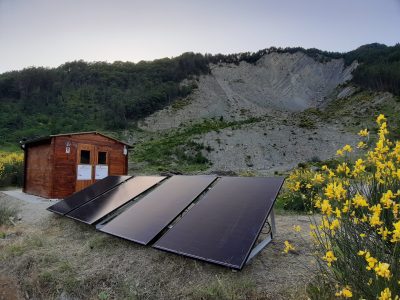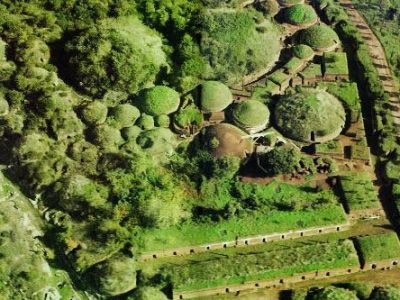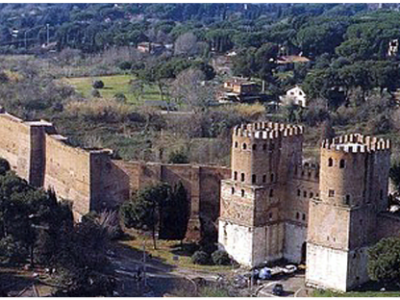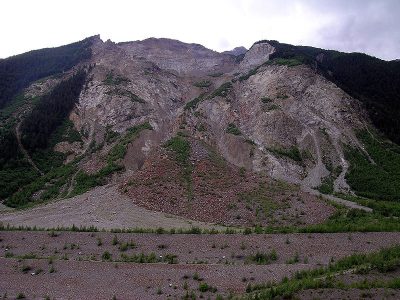Research Projects
My research projects and conferences
Research Team
Antonio Cosentino
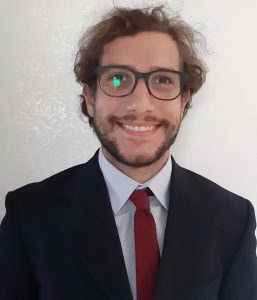
Antonio Cosentino is a PhD student at the Department of Earth Sciences of Sapienza University of Rome and co-funded by Nhazca Srl, Start-Up of the same University. He graduated with honors in Applied Geology to Engineering, Territory and Risks at Sapienza University with a thesis in Remote Sensing titled “Identificazione e Caratterizzazione dei Fenomeni di Rockfall Presso il Sito Sperimentale di Poggio Baldi”. He is a qualified Applied Geologist (A-2129, Ordine Dei Geologi del Lazio) with experience as technical consultant. He developed his skills in Remote Sensing with a 3 months research project at BGC Engineering in Vancouver (CA).
Benedetta Antonielli

Benedetta Antonielli graduated with honors in Geological Sciences, at the University of Florence and PhD at the University of Pisa. From 2018 until now she works as a research fellow at the Department of Earth Sciences, University La Sapienza of Rome (scientific disciplinary sector GEO/05). After the experience as research fellow at the Department of Earth Sciences in Florence and the achievement of the professional qualification as geologist, she pursued the joint PhD between the University of Pisa, Florence and Siena. During the PhD, she carried out a 9-month period abroad at the Centre Tecnològic de Telecomunicacions de Catalunya (CTTC, Castelldefels, Spain), where she studied and used the classical (DInSAR) and advanced (PSI) satellite SAR interferometry technique. From 2016 she collaborated with NHAZCA S.r.l. as a consultant in the development of research projects and the analysis and interpretation of data acquired with remote sensing in the geological-engineering field. Currently, at the DST of the University La Sapienza of Rome, she is involved in several national (PRIN Project 2017) and European projects (Horizon H2020 projects) and collaborates in teaching by following master thesis. She is author of more than 20 scientific papers in journals and conference proceedings covering topics in structural geology (convergent margins, tectonic inversion) geological hazards and applied geology (seismic-driven multi-hazard scenarios, landslides, subsidence and subsidence, also in mining, monitoring of structures and infrastructures such as dams and tailings dams), with particular regard to the use of satellite SAR interferometry.
Giandomenico Mastrantoni

Graduated with Honors in Geology Applied to Land and Hazard Engineering (GAITR) at the University of Rome “La Sapienza” in December 2019 with a thesis entitled “Geo-structural characterization of the Poggio Baldi landslide through the integrated use of 2D and 3D remote sensing data”. During his graduation, Giandomenico attended the Geo-Engineering & Geoscience Research Accelerator Program (GeoRA) organized in the Vancouver offices of BGC Engineering Inc. and from the duration of three months (June-August 2019). After a first work experience as geologist (January-October 2020) at the start-up NHAZCA S.r.l., where he was mainly involved in monitoring services through terrestrial SAR interferometry, he won a PhD scholarship at the University of Rome “La Sapienza” and funded by the research center CERI “Previsione, Prevenzione e Controllo dei Rischi Geologici” with a project concerning the development of Machine Learning algorithms for the intelligent and integrated assessment of geological hazards in urban areas.
Roberta Marini
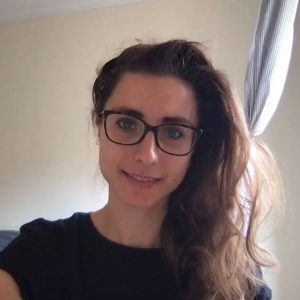
Roberta Marini is a Junior Research Fellow at the Department of Earth Sciences, Sapienza University of Rome, working on the project ‘revision of the high landslide hazard areas P3 and very high landslide hazard areas P4 of the PAI areas interacting with the reconstruction forecasts in the municipalities affected by the seismic events occurred since August 24, 2016-2017‘. Graduated in Physics, I focused my studies in the field of Solid Earth Physics in particular in Geodesy, Seismology, Tectonophysics, Seismic Tomography and Applied Geophysics with active and passive seismic, geoelectric and gravimetric surveys. In the thesis project I have deepened the MASW and HVSR techniques for a study of local seismic response, starting from the acquisition of data in the countryside to the joint processing and inversion of data in order to find the S-wave velocity profiles and then the amplification factor of the covers present in the area of investigation. Finally, I studied Python and Matlab programming with particular attention to solving differential equations and Machine Learning techniques.
Siham Younsi

Siham Younsi is a post-doctoral researcher at the Department of Earth Sciences, Sapienza University of Rome. An archaeologist, she holds a PhD in geoarchaeology from the same department, a Master’s degree in archaeology and a European Masters in archaeometry and technologies applied to the conservation of cultural heritage. Siham has worked in various national and international fields in the field of cultural heritage and is currently pursuing her research on innovative monitoring technologies applied to the preservation of architectural and archaeological heritage.
Claudia Masciulli
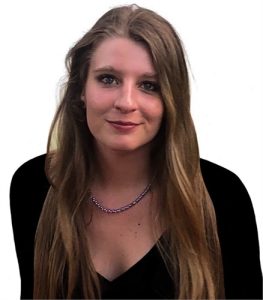
Claudia Masciulli is a PhD student at the Department of Earth Sciences of Sapienza University of Rome. Born in San Cesario di Lecce, 30th April 1994. Master Degree in Astronomy and Astrophysics at Università di Roma La Sapienza in 2021 (summa cum laude). The thesis, entitled “Synergies and complementarities between JWST and EXCITE: advancing spectroscopy of exoplanet atmospheres”, was carried out under Prof. Pascale supervision. Ph.D student in 2021 in Earth Science at Università di Roma La Sapienza, with one scholarship funded by Centro di Ricerca previsione, prevenzione e controllo dei rischi geologici (CERI). The field of activity is Remote Sensing. The research activity provides new satellite tools to identify, classify, and map deformation processes. The goal is the long-term monitoring of the state of activity of deformation processes through the application of Machine Learning techniques.
Giacomo Santicchia
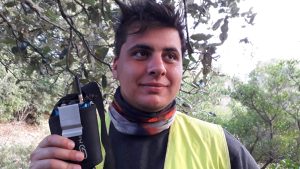
Giacomo Santicchia is a PhD student at the Department of Earth Sciences of Sapienza University of Rome.
Jagadish Kundu

Jagadish Kundu is a postdoctoral research fellow at the Department of Earth Sciences, Sapienza University of Rome. He is an expert in rock mechanics and is interested mostly in solving hill slope stability problems using physical, numerical and point cloud techniques. He is a PhD in Engineering Geology from the Indian Institute of Technology (ISM) Dhanbad, India and a graduate in Applied Geology from IIT Bombay, India. He aims to nurture his understanding of the behaviour of Soil and Rockmass for detection and remediation of instability in natural and engineered Earth-mass. He also has a keen interest in developing tools and techniques to solve or ease the difficulties related to slope stability and engineering constructions in Earth mass.
Ebrahim Ghaderpour
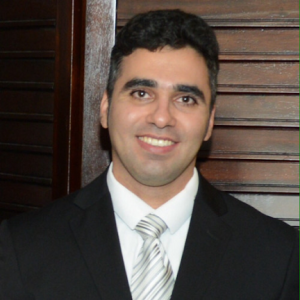 Ebrahim Ghaderpour is an Assistant Professor in Remote Sensing at the Sapienza University of Rome. He obtained his first PhD in Theoretical and Computational Science in 2013 from the University of Lethbridge, Canada and his second PhD in Remote Sensing in 2018 from York University, Canada. Ebrahim completed two postdoctoral appointments at the Departments of Mathematics and Statistics and Geomatics Engineering at the University of Calgary, Canada. Ebrahim’s research revolves around big data analytics, time series analysis, and their applications in remote sensing and monitoring. His current research focuses mainly on mapping and characterization of the deformation processes of land through remote sensing techniques. Ebrahim is also the CEO of Earth and Space Inc. (www.earthspace.ca). He is also an editor and reviewer for several scientific journals.
Ebrahim Ghaderpour is an Assistant Professor in Remote Sensing at the Sapienza University of Rome. He obtained his first PhD in Theoretical and Computational Science in 2013 from the University of Lethbridge, Canada and his second PhD in Remote Sensing in 2018 from York University, Canada. Ebrahim completed two postdoctoral appointments at the Departments of Mathematics and Statistics and Geomatics Engineering at the University of Calgary, Canada. Ebrahim’s research revolves around big data analytics, time series analysis, and their applications in remote sensing and monitoring. His current research focuses mainly on mapping and characterization of the deformation processes of land through remote sensing techniques. Ebrahim is also the CEO of Earth and Space Inc. (www.earthspace.ca). He is also an editor and reviewer for several scientific journals.Hamed Dabiri
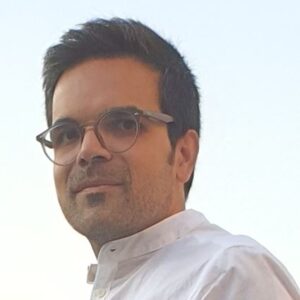
Hamed Dabiri is a post-doc researcher at Sapienza Universita di Roma. He holds a PhD in Structural Engineering from University of Camerino, Italy. As a visiting PhD student, He did a part of his PhD at University of Birmingham, UK.
Hamed’s main fields of interests are analysis and design of structures, and seismic hazard. He has conducted numerical (using ABAQUS) and experimental studies on the performance of structural elements. Moreover, He has assessed the application of Machine Learning-base methods in civil and structural engineering.
His current research area concerns evaluating buildings’ performance by implementing remote sensing, Machine Learning and Finite Element Analysis.
Jessica Clementi
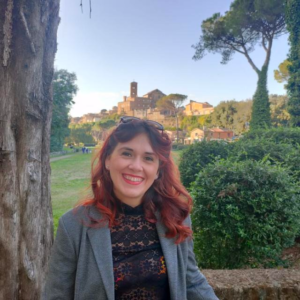
Jessica Clementi is post-doc fellow at Sapienza University of Rome, Earth science Dept. Archaeologist and Topographer, she wrote her PhD dissertation on the use of funerary masks in the southern Balkans during archaic and classical periods. She was previously post-doc fellow at University of Ferrara, working on the role of Roman Antiquities in the construction of social identities and legitimation of emerging noble families during 19th century and post-doc fellow at Sapienza University of Rome, Antiquity Science Dept. with a project on the reinterpretation of Greek and Roman artistic production for a new contextualized museum model. Her current research deals with new technologies for monitoring of the italian architectural and archaeological cultural heritage.
Gian Marco Marmoni

Gian Marco Marmoni is a post-doc researcher in Engineering Geology at Sapienza Universita di Roma.
Divyeskumar Rana

Divyeskumar Rana is a PhD student at Sapienza Universita di Roma.
Lab
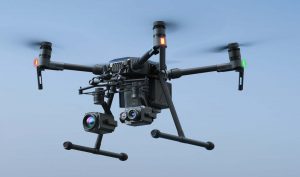
Drones lab
Sapienza Università di Roma
(2021-2022)
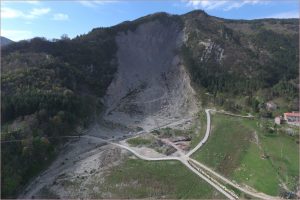
Sapienza Università di Roma
(2021-2022)

